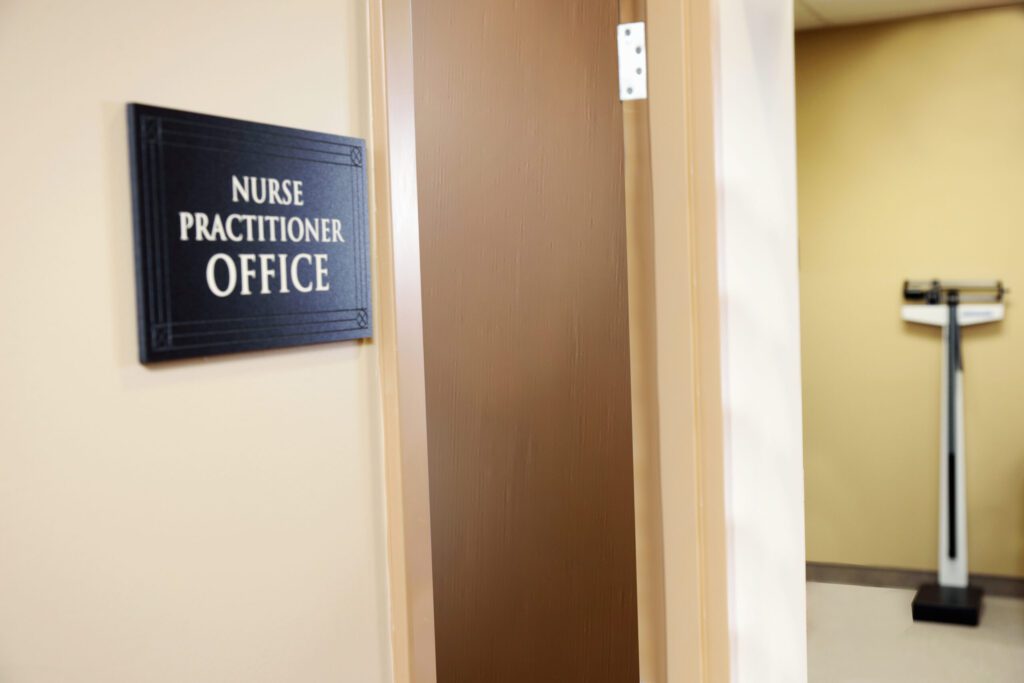New Law to Allow Advanced Nurse Practitioners to Operate Independently
by TERESA SCHIFFER
In March, the Florida Legislature passed a bill allowing advanced nurse practitioners (APRNs) to independently operate primary care practices without the supervision of an attending doctor. Sponsored in part by Health Quality Subcommittee Chairman Rep. Cary Pigman, a Republican representing Avon Park, House Bill 607 allows nurse practitioners to practice autonomously, thereby increasing the number of qualified health professionals available to serve the medical needs of Florida’s residents. While various healthcare organizations, including Floridians Unite for Health Care, support the bill, some doctor groups have long opposed the measure.
Pigman has been working on this proposal since 2014 and cites Florida’s shortage of healthcare providers as the main reason for proposing this change to Florida’s healthcare system. He has first hand expertise on this dearth from working as a doctor in rural areas.
Governor Ron DeSantis agreed with Pigman’s assessment and quickly signed the measure into law. He also signed another bill that was a top priority for House Speaker Jose Oliva, a Republican from Miami Lakes, that allows qualified pharmacists to treat chronic conditions if they have entered into an agreement with a physician. Pharmacists will now be able to independently treat conditions such as asthma, arthritis, and obesity, as well as test for and treat illnesses like strep throat and the flu.
The primary objection that groups such as the Florida Medical Association and the Florida Society of Plastic Surgeons raise is that APRNs and pharmacists do not receive the same comprehensive training as doctors, and so may not be qualified to render aid on complex diagnoses. DeSantis entered his current office with the support of FMA, but has long supported the expansion of authority for APRNs.
There were some compromises made before the APRN bill passed. Oliva had originally pushed for physician assistants and certified registered nurse anesthetists to also get clearance to practice independently, but that was dropped from the final bill.
The Florida Legislature has acknowledged the need for an increase in Floridians’ access to quality healthcare, and has already instituted programs that create debt forgiveness for medical professionals who choose to work in underserved areas and fund graduate medical education.
Family nurse practitioner Mai Kung spoke before the legislature on behalf of the Florida Nurses Association, highlighting the fact that over 50 years of research data has shown that APRNs are able to provide patients with high-quality, affordable healthcare and that their health outcomes are comparable to those treated by physicians. Research conducted by the National Governors Association concurred with Kung’s assertion, bolstering support for House Bill 607 within the legislature.
The new law ensures that independent APRNs will have sufficient training to meet the needs of their patients. They must complete minimum graduate level course work in pharmacology and differential diagnoses. This will qualify them to write prescriptions, as well as provide services such as family medicine, general internal medicine, and general pediatrics. APRNs will also have the authority to admit, care for, and discharge patients from medical facilities.
House Bill 607 had the support of major business organizations, including the Associated Industries of Florida (AIF). Brewster Bevis, Senior Vice President of State and Federal Affairs for AIF, applauded the action taken by the legislature and Governor, stating that the bill “will have a positive impact on Florida’s economy to the tune of more than $1 billion in estimated increased wages and new job creation.” The increased autonomy of nurse practitioners will help them to avoid the expenses associated with working under a physician’s oversight.
The law is still in the early stages of development. An advisory council is being formed that will make recommendations to the Board of Nursing on the standards of practice for APRNs. This Council on APRN Autonomous Practice is being assembled now, and is expected to present recommendations at the Board of Nursing’s August meeting. The Board will then need to formally adopt the new regulations.
Arlene Wright, president of the Florida Nurse Practitioner Network, the oldest such organization in the state, reiterates the sense of uncertainty about how HB607 will proceed.
“The Board of Nursing recently met and made recommendations that included expanding the definition of primary care to be more inclusive as well as delineating the educational requirements,” Wright explains.
“Nurse practitioners are advised at this time not to contact the board or apply since [it] has not been formalized as well as the fact that the council has not yet met and nor have nurse practitioner members been appointed.”
Executive Director of the Florida Nurse Practitioner Network Jean Aertker explains the push for this legislation.
“Florida is the third-largest state licensing APRNs (over 35,000) next to California and New York, yet our license to practice remains restricted,” she says. “The nurse practitioner role is essential in health care. Thirty states now allow Independent Practice for nurse practitioners and utilize their role to help cover the overwhelming need for primary care and some outpatient speciality care. The HB 607 is a good start but until the APRN-IP council is appointed and meets for recommended practice requirements, many nurse practitioners await the opportunity to apply, especially those in rural areas and in their own private practices.”
